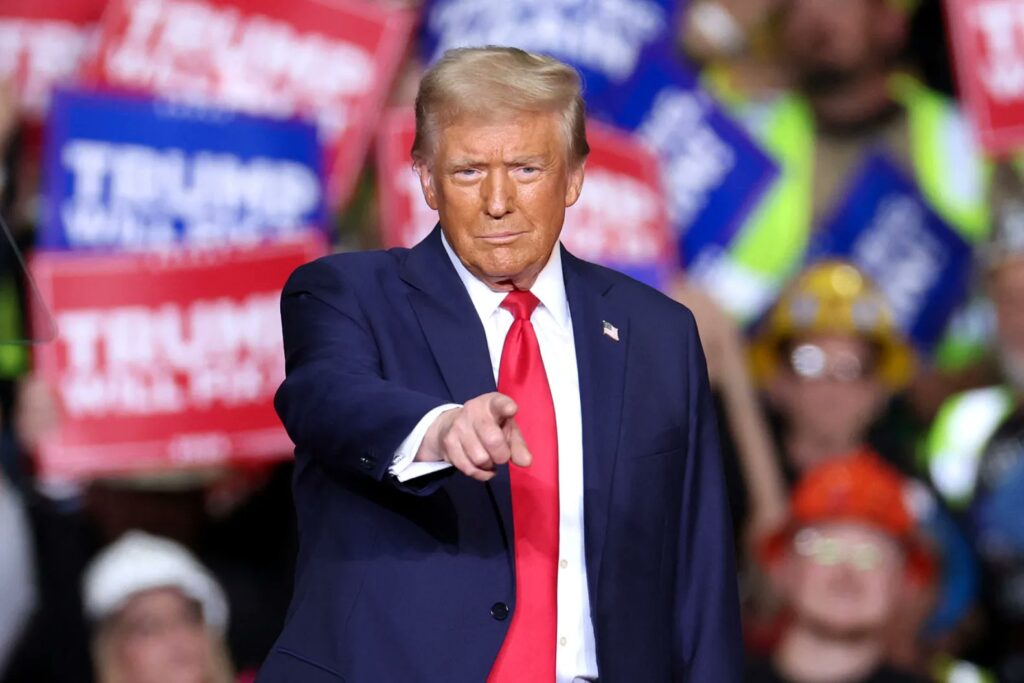
President-elect Donald Trump on Monday confirmed plans to declare a national emergency on border security and utilise US military forces for a mass deportation of undocumented migrants.
The announcement came as Trump solidifies his immigration-focused agenda following his victory in the November 5 election.
On his social media platform Truth Social, Trump amplified a recent post by a conservative activist that said the president-elect was “prepared to declare a national emergency and will use military assets to reverse the Biden invasion through a mass deportation program.”
Alongside the repost, Trump commented, “True!”, as reported by AFP.
Following his electoral win, Trump has moved quickly to assemble a cabinet featuring hardliners on immigration, including naming former Immigration and Customs Enforcement acting chief Tom Homan as his “border czar.”
Homan appeared at the Republican National Convention in July, telling supporters, “I got a message to the millions of illegal immigrants that Joe Biden’s released in our country: You better start packing now.”
The announcement of a military-led deportation effort is expected to affect millions of undocumented individuals in the US, with some estimates suggesting around 11 million people are currently living in the country illegally.
Related News
Donald Trump: Three grammar lessons from George Bush’s congratulatory message
Trump confirms plan to use military for mass deportation
Cruise ship offers Americans four-year trip to escape Donald Trump’s second term
Trump’s plan is expected to directly impact up to 20 million families.
According to AFP, throughout his campaign, Trump repeatedly used inflammatory language about immigration, describing the influx of migrants as an existential threat to American security.
He has argued that migrants crossing the southern border illegally pose a danger to American citizens, echoing his earlier claims that immigrants would bring crime and violence.
Trump has also suggested invoking the Alien Enemies Act of 1798 to expedite deportations.
The law, which was last used during World War II to justify the internment of Japanese-Americans, has been criticised by opponents as outdated and overly broad.
Critics argue that such a move could undermine civil liberties and lead to widespread human rights abuses.
While the number of border patrol encounters with migrants attempting to cross illegally has risen significantly, the numbers are now similar to the levels seen in 2020, Trump’s final year in office, following a peak of 250,000 encounters in December 2023.








